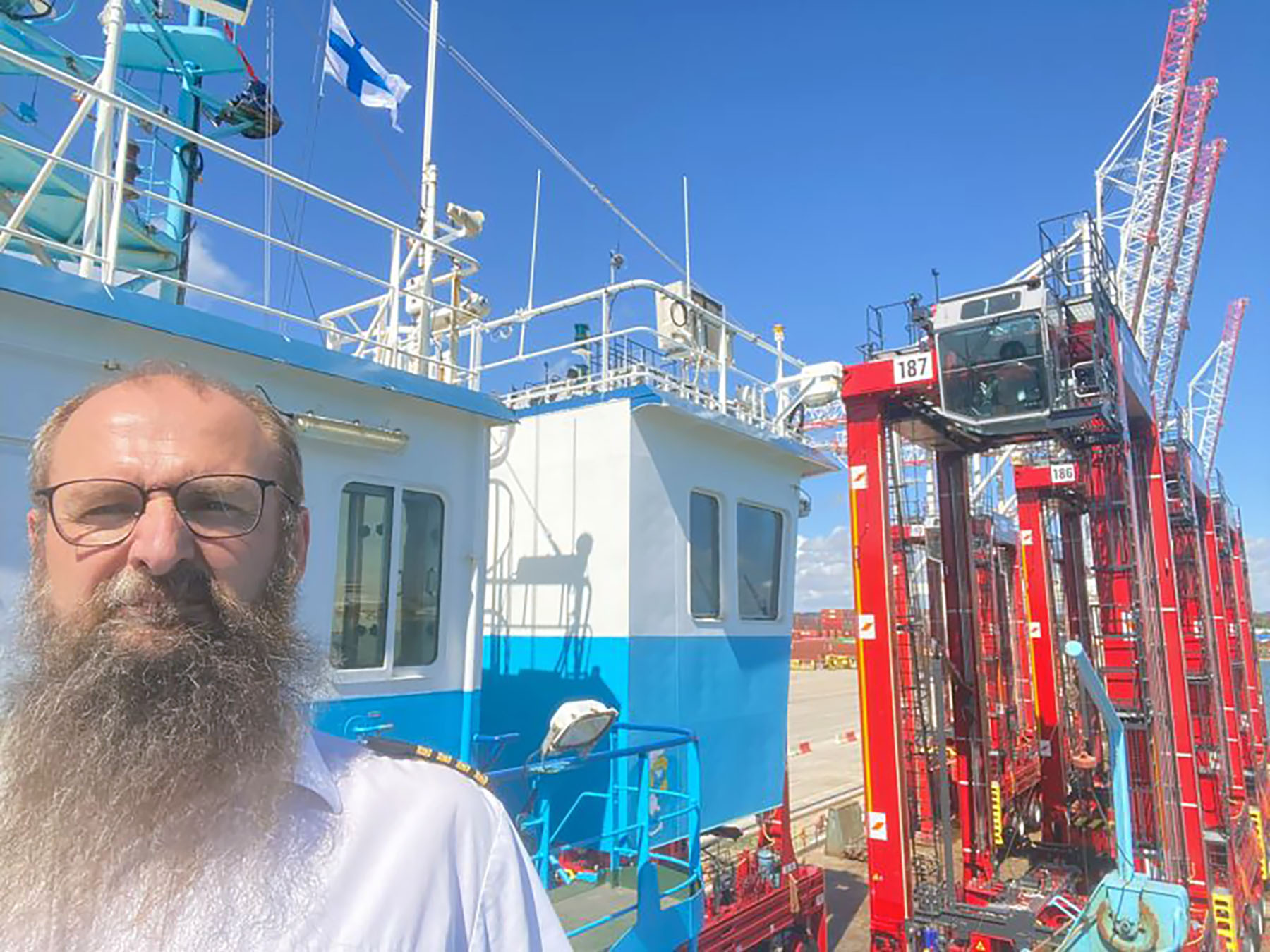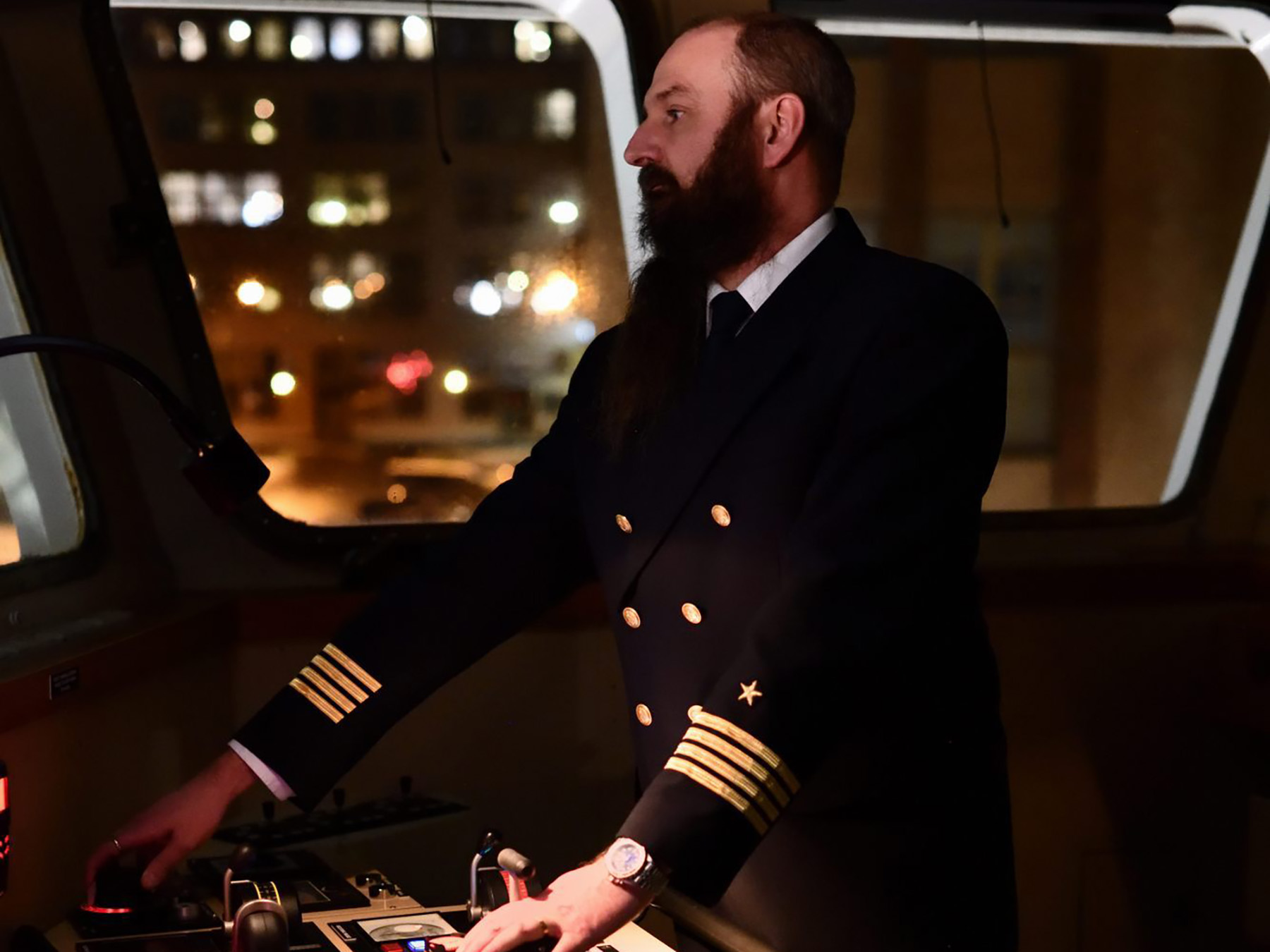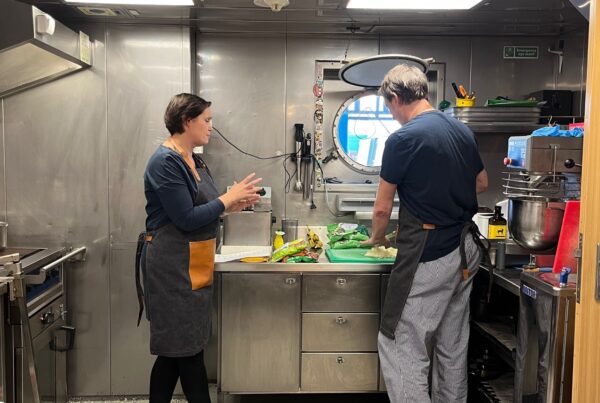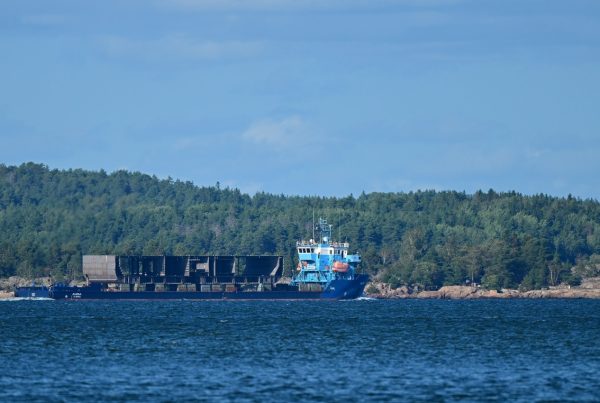The availability of experts in the maritime industry is a worry, and the industry is actively looking for ways to respond to the labor shortage and increase the attractiveness of the industry. A key concern is also getting young professionals into the industry to replace the maritime workforce, which will be retiring in large numbers in the next few years. The shortage of workers in all vacancies has already been noticed in shipping companies. At the same time, an alarmingly large number of students who start at maritime educational institutions drop out. The availability of labor is also affected by the fact that relatively few women still apply for maritime work.
How does maritime work then look from an experienced seafarer’s perspective? We interviewed one of our Captains, Thord Vaenerberg.
Thord began his career as a seafarer after graduating from Marienhamn Navigation School in 1989. The spark for the sailor’s profession was ignited already in his teenage years. There were two sailors close to Thord, a family acquaintance and a cousin a few years older, that made the sailor’s career seem glamorous. Living by the archipelago in Loviisa and spending summers in Åland had made the sea as an element natural to the young man.
“During my whole life, I have only worked ashore for one summer. Already in middle school, I told my girlfriend at the time, my current wife, that it’s worth getting used to the idea that I’m going to go to sea,” Thord laughs. He is now 50 years old, and the couple is still together. They also have four grown-up children.
After sailing for a couple of years Thord continued his studies in Turku and became Chief Officer in 1992. After that he graduated from the same school as Master Mariner in 2000. Between studies he worked for several years, as is common in the industry.
Thord worked for Bror Husell to begin with. When the shipping company was sold, he started working for Bore. After Bore sold the bulk vessels, he ended up working for Meriaura, where he is still today.
“Eeva VG was my first vessel at Meriaura. Professionally it was an interesting period on time; a fine newbuilding where test drives on bio-oil were done. The full-scale ice tests done for Aker Arctic in Kemi were also a memorable experience. Thord has also done a few shifts on Polaris VG and Helena VG. Thord spent one winter on the Cruise Icebreaker Sampo, and for the last years he has been Master Mariner of the Research Vessel Aranda.
“This summer I had a chance to substitute on deck cargo vessel Aura. It was like a circle had closed, because now I have worked as Master on every type of vessel there is in Meriaura’s fleet. It is rare that in a shipping company of this size it is possible to acquire such versatile experience. I’m proud of that”, Thord sums up.

He reckons the shipping business has changed a lot during the 30 years of his career. “The old sailor romanticism no longer exists because the port visits are so short. When you go to the sea, it is the sea you see, not so much the world anymore”, Thord ponders. He sees as a good thing the way the shipping business has “tidied up” in terms of alcohol use.
However, he doesn’t find the work of a sailor boring at all, especially when one gets to participate in different projects and on different ships. “The seafaring itself is still wonderful, but I don’t like the increased bureaucracy”. The best part of the job is working in shifts, and the fact that there’s a clear difference between work a free time. After a five-week shift there’s a five-week leave. “I’ve had a chance to spend a lot of time with my kids, probably a lot more than an average dad usually has”, Thord reflects. The same characteristic of the job, however, is also the most challenging element of this career choice. He has missed family gatherings and birthday parties.
In the master’s job, leadership, especially managing people, is the most interesting, but also the most challenging thing in Thord’s opinion. “There should be more leadership training in studies as well.”
Thord finds that the responsibilities as well as freedoms in the master’s work are enormous. “The law defines great powers, but also great responsibilities. The master is responsible for basically everything on the ship.“ Nowadays there are more instructions coming from the office ashore, which doesn’t always make it easier for the master to make decisions.
Thord wants to encourage young people planning to start a maritime career: “Life at sea is wonderful for sure. For example, when Aura visited the Bay of Biscay recently, we saw dolphins and whales. And the sea is blue. The sea has many fine, appreciated elements that make this profession unique”.

When it comes to the maritime sector, is not just a question of choosing a profession, it is a lifestyle. It has become easier to keep in contact, and you’re not completely isolated like you were before. “Back in the days you used to call home from payphones every two weeks if you were lucky, and you got to talk to someone if they happened to be home. Now, although we have social media and good connections, I still think it’s better to live in the physical world rather than in the virtual reality. I think you should be mentally present wherever you are.”
In Thord’s opinion it’s not hard to advance one’s career in the maritime industry, but it does take time. “After each step, you must grow into the new position. For example, it takes five years to learn how to be a Master. While gaining experience, you are a Chief officer in Master’s position.
All in all, the maritime industry and the rhythm of life that has come along with it had suited Thord and is family well. “My wife agrees with me on this. It keeps the relationship fresher when you aren’t together all the time,” Thord laughs.
Elina Mälkiä
Communications Manager









